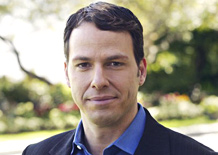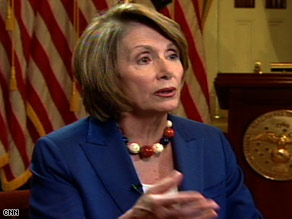
Associated Press
Barack Obama is seen being photographed during a meeting with U.S. military personnel in Afghanistan.
The Democratic candidate meets military planners and troops in Afghanistan on a tour aimed at raising his foreign policy profile.
By Peter Nicholas and M. Karim Faiez, Special to The Times
July 20, 2008
KABUL, AFGHANISTAN -- Barack Obama met with U.S. troops and received a military briefing on conditions in Afghanistan on Saturday during the opening leg of an overseas trip designed to showcase his appeal in foreign capitals and reassure American voters that he would make a reliable commander in chief.
Obama's trip is scheduled to include a visit to Iraq, and his foreign policy judgment got an unexpected boost from that country's leader, Nouri Maliki, who praised the Democratic presidential candidate's plan for withdrawing U.S. troops over a 16-month period.
In
an interview with the German magazine Der Spiegel, Maliki embraced Obama's plan, saying: "That, we think, would be the right time frame for a withdrawal, with the possibility of slight changes."
Maliki said he was not making an endorsement in the presidential race.
The presumed Republican nominee, John McCain, has said that conditions in Iraq could worsen if troops were removed at the pace his rival has advised.
Obama's high-profile trip caps a week on the campaign trail during which he focused on national security and U.S. commitments abroad -- areas that are considered special strengths of McCain.
Seizing on Maliki's favorable comments, the Obama campaign put out a statement from his senior foreign policy advisor, Susan Rice: "Sen. Obama welcomes Prime Minister Maliki's support for a 16-month timeline for the redeployment of U.S. combat brigades. This presents an important opportunity to transition to Iraqi responsibility, while restoring our military and increasing our commitment to finish the fight in Afghanistan."
In a speech last week, Obama said that troops should be drawn down in Iraq and two additional combat brigades deployed in Afghanistan, a war he said the U.S. couldn't afford to lose.
His visit to Afghanistan comes at a time of sharply deteriorating security across the country. Suicide bombings are an everyday occurrence, and the number of foreign troops killed last month was the highest since the start of the war.
The presumptive Democratic nominee and senator from Illinois is part of an official congressional delegation that includes Sens. Jack Reed (D-R.I.) and Chuck Hagel (R-Neb.). The lawmakers made a brief visit to Jalalabad airfield in eastern Afghanistan, greeting American troops from their respective home states.
At Bagram Air Base outside Kabul, Obama and the others met with senior military officials and got a briefing from the commander of American forces in eastern Afghanistan, Maj. Gen. Jeffrey J. Schloesser. The decision to have the delegation meet with Schloesser probably reflected growing U.S. concern over infiltration of fighters from tribal lands on the Pakistani side of the frontier, which borders Afghanistan's eastern provinces.
Although Afghanistan's south is the traditional heartland of the insurgency, the eastern front, where U.S. forces are concentrated, has heated up dramatically in recent weeks. American troops suffered their worst single-incident loss in three years last Sunday, when about 200 insurgents staged a well-organized assault on a remote base near the Pakistani border manned by U.S. and Afghan troops; nine Americans were killed and 15 wounded.
On Saturday, a NATO soldier was killed in an explosion in southern Afghanistan, in the Panjwayi district of Kandahar province. The soldier's nationality was not released, but nearly all Western troops in that area are Canadian.
On the eve of his trip, Obama told reporters he wanted to make a firsthand evaluation of the Afghan and Iraqi war zones.
"Well, I'm looking forward to seeing what the situation on the ground is," he said Thursday. "I want to, obviously, talk to the commanders and get a sense -- both in Afghanistan and in Baghdad -- of, you know, what . . . their biggest concerns are. And I want to thank our troops for the heroic work that they've been doing."
In the Afghan capital, where constant power disruptions limit people's access to radio and television news reports, many residents were not aware of Obama's arrival. He is to meet with President Hamid Karzai today.
Obama caused a stir this month with remarks about the struggles of the Karzai government.
"I think the Karzai government has not gotten out of the bunker and helped to organize Afghanistan and [the] government, the judiciary, police forces, in ways that would give people confidence,"
Obama told CNN.
Yet there is considerable enthusiasm here at the prospect of a change in the American administration. Many Afghans, while grateful for the U.S.-led invasion more than six years ago that drove the Taliban from power, are disappointed that the country still faces violence and poverty.
Obama "has good ideas about Afghanistan, and I hope he becomes the U.S. president," said university student Hafeez Mohammad Sultani, 23. "He is young and full of energy."
Others, however, were more skeptical.
"Bush couldn't provide security in Afghanistan, so that will be difficult for Obama too," said telecommunications worker Shams ul-Rahman, 38. "This is a very big challenge for America -- maybe there will be some changes in the way Obama is thinking about Afghanistan."
Obama's companions on the trip are considered possible administration appointees should he win the presidency. Reed is a senior member of the Senate Armed Services Committee, and Hagel is a Vietnam veteran who, like Obama, has opposed the Iraq war.
Recent polls show that most Americans see McCain, who was a prisoner of war in Vietnam, as the more seasoned of the two candidates when it comes to foreign policy.
To close the gap, Obama has been trying to shore up his credentials. In speeches and opinion pieces, Obama has argued that invading Iraq was a mistake, that Iraqi officials also favor a timetable for U.S. troop withdrawal, and that Afghanistan is the real front in the war on terrorism.
In that respect, Maliki's remarks gave Obama a boost and left McCain in an awkward spot.
The Arizona senator has said that U.S. troops should leave Iraq when the Maliki government and U.S. commanders on the ground deem the country secure. But McCain has dismissed Obama's 16-month timeline as politically motivated and said it was an invitation for more chaos in Iraq.
McCain's senior foreign policy advisor, Randy Scheunemann, said in a statement Saturday: "The difference between John McCain and Barack Obama is that Barack Obama advocates an unconditional withdrawal that ignores the facts on the ground and the advice of our top military commanders. John McCain believes withdrawal must be based on conditions on the ground.
"Prime Minister Maliki has repeatedly affirmed the same view and did so again today. Timing is not as important as whether we leave with victory and honor, which is of no apparent concern to Barack Obama.
"The fundamental truth remains that Sen. McCain was right about the [U.S. troop] surge and Sen. Obama was wrong. We would not be in the position to discuss a responsible withdrawal today if Sen. Obama's views had prevailed."
The Republican candidate also has ridiculed Obama for making pronouncements on Iraq and Afghanistan in advance of his visit.
In
a radio address Saturday, McCain said: "My opponent . . . announced his strategy for Afghanistan and Iraq before departing on a fact-finding mission that will include visits to both those countries. Apparently, he's confident enough that he won't find any facts that might change his opinion or alter his strategy. Remarkable."
Obama is scheduled to visit the Middle East and Europe in what will probably become a media spectacle, with television news anchors covering each stop as though Obama were a head of state.
Images of adoring crowds greeting Obama in Germany and elsewhere feed into a campaign strategy to demonstrate that as president he would improve the United States' beleaguered reputation in Europe.
Before landing in Afghanistan, the delegation stopped in Kuwait.
Obama relaxed there with U.S. troops, taking to the basketball court for a game of H-O-R-S-E.
peter.nicholas@latimes.comTimes staff writer Nicholas reported from Washington and special correspondent Faiez from Kabul. Times staff writers Laura King in Istanbul, Turkey, Michael Muskal in Los Angeles and Nicholas Riccardi in New York contributed to this report.
Original here










